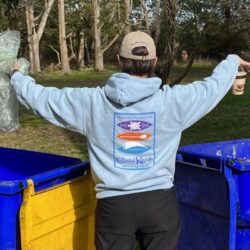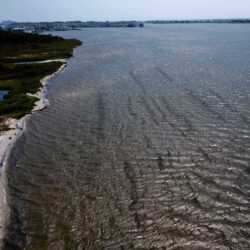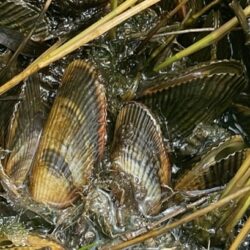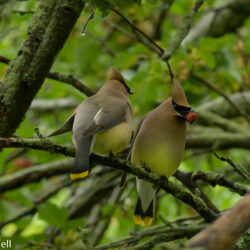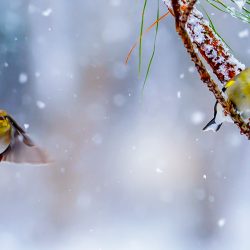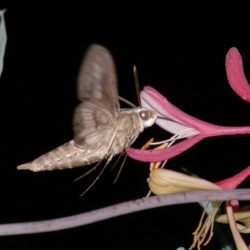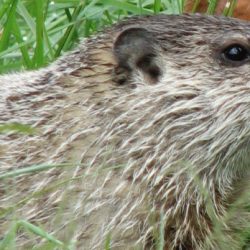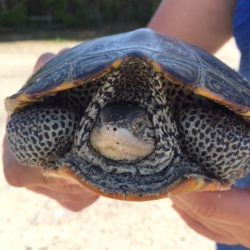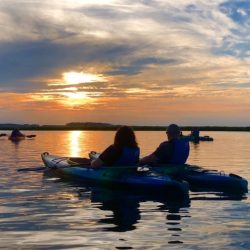Are You Guilty of Wishcycling? (Me, too.)
Are you guilty of wishcycling? Me, too. What is wishcycling? It’s when you’re not sure if something is recyclable, but you really want it to be, so you throw it in the recycling bin and cross your fingers. Plastics, all sorts of plastics, top my wishcyclable list. I feel so guilty buying them. I’d like all of them to find new, happy lives over and over again. While in theory many plastics could be recycled, there is simply no market for them. It is cheaper, and easier, to produce new plastic. And with no incentive to use recycled material, corporations opt for the most cost-effective solution. That’s why only 9% of all plastics ever produced have been recycled. The estimated weight of all plastic ever produced is now greater than the weight of all land
Read MoreHow to Read the Wind by Mitch Mitchell
For millennia, the outside environment played a vital role in human survival. Whether they were farmers or fishermen or sailors, most people's lives revolved around the weather. Today, however, we go from our climate-controlled house to our air-conditioned car to our climate-controlled office and back again. The weather plays a very small role in our day-to-day existence. And sadly, most of us have lost the ability to read the wind. But for any outdoor activity, from sailing to pickle ball, the weather, especially the wind, is a major factor. Being able to read the wind’s direction and velocity, especially in water sports, can be the difference between an enjoyable, safe adventure, and a disaster. Before the days of wind meters and phone apps, watermen used The Beaufort Scale to communicate wind velocity. Developed in 1805 by
Read MoreThe Body Builders of Little Assawoman Bay
In our area, oysters get all the glory for cleaning our bays. But they aren’t the only mollusks in the ring. For filtering water and controlling erosion, Atlantic Ribbed Mussels do a lot of heavy lifting. Their name comes from the fact that they have ridges, or ribs, on their shells as opposed to the smooth shells of Blue mussels. Atlantic ribbed mussels can live up to fifteen years. You can determine their age by counting the ribs on their shells. You’ll find thick aggregates of Atlantic ribbed mussels along the muddy banks of the salt marshes in our inland bays. They attached themselves to the roots of the salt marsh grasses (and each other) with strong, silky fibers called byssal threads. Made of collagen, just one of these tiny threads is strong enough to
Read MoreTrack Bird Migration with 3 Easy Tools!
The night of April 20, 2023, while most of us slept, 603,700 birds flew right over the top of us here in Sussex County, heading north-northeast at an average speed of about thirty-three mph, flying at about 1,900 feet of altitude. The night before, 858,800 traveled through, and the night before that, there were only 4,400. The migrants were a mixture of species—Dark-eyed juncos, Hermit thrushes, Prothonotory warblers, to name a few. Am I some sort of superhero birder that I can see in the dark, count thousands of small flying beings high above me, and identify them? Very much the opposite—unless a bird lands right in front of me and stays still long enough for me to enter the size, color, habits, etc., into my Merlin app, I’m hopeless. In 1999, a group of
Read MoreHow You Can Help Bird Conservation Efforts in Just 15 Minutes this Weekend!
The 26th Annual Great Backyard Bird Count (GBBC) is coming soon—February 16-19! Maybe (like me) you’ve thought about doing it in the past but felt a little intimidated: You don’t really consider yourself a birder. Or you don’t have multiple days to commit to birding. Maybe you don’t even have a backyard. It turns out, to participate in this worldwide citizen science project, none of the above concerns are issues. To take part, you: Only need to count birds for a minimum of 15 minutes on one day between February 18-21. Can be anywhere—in a kayak, on a beach in the Caribbean, at a ski lodge in Colorado, at home sipping hot chocolate on your back porch. Don’t have to be a birder. You just have to try to identify the birds. (Bird apps help
Read MoreA Wannabe Naturalist
I never liked science. Dissecting critters—gross. Learning scientific classifications—yawn. Memorizing the periodic table—Thirsty Thursday, anyone? So why would I want to become a naturalist? It probably started with A Sand County Almanac. Followed closely by Desert Solitaire. Most recently, Braiding Sweetgrass. Through words, these naturalist/authors opened my eyes. So although I worried I’d be expected to memorize the scientific names of plants and animals, and identify trees and shrubs at a glance, and tell the difference between a Sanderling and a Sandpiper, I signed up for the class. I wanted the tools to see what my heroes saw. I was excited to be in the inaugural Delaware Master Naturalist program. It started in March 2020—that dreaded Covid spring. We got one class in before the pandemic disrupted everything. In person classes ended, the field trips
Read MoreLove Bugs
We love to save the majestic ones—bald eagles, elephants, tigers; and the adorable ones—pandas, terrapins, monkeys; and the mysterious ones—sea turtles, owls, whales. But one of the biggest (and tiniest) heroes of our natural world is also, for most people, one of the hardest things to love—bugs. And that’s unfortunate, because right now bugs desperately need help. Yes, some insects sting and bite. But the vast majority just go about their business day in, day out, trying to ignore homo sapiens. And their “business” is essential to life on earth. Insects pollinate 87.5% of flowering plants. These plants become food for thousands of species of animals, including humans. According to the USDA Natural Resources Conservation Department, “… scientists estimate that one out of every three bites of food we eat exists because of animal pollinators like
Read MoreSympathy for Phil
Well, Phil let us down today. But, really, who can blame him? If you’d been asleep for five months and someone rudely yanked the covers off, wouldn’t you look for any reason to dive back under, too? About this time of year, early February, male Groundhogs start coming out of hibernation. When a Groundhog goes into hibernation, it shuts down nearly all its systems. It breathes once every five to six minutes, its heartbeat slows from 100 beats per minute to 15, and its body temperature drops from 95 degrees to around 45 degrees. All of this causes its metabolism rate to plummet so that, even though it hasn’t eaten for about 150 days, it will have lost no more than a quarter of its body weight. While Punxutawney Phil (in Pennsylvania) is our closest
Read MoreWhere is Everybody?
According to Mitch, back in the 1980s when he first moved to the area, the Tuesday after Labor Day you could roll a bowling ball right down the middle of Rt. 1. While the nesting and migratory habits of homo sapiens have changed radically in recent years, for most species, life cycle changes are measured in decades, centuries, and eons. Which means that, even though nowadays weekend beach traffic is thick no matter the season, you still won’t see a Horseshoe crab in Little Assawoman Bay in January. But where do our feathered, gilled, and web-footed friends go in the winter? Bird-watchers and scientists have always known that Osprey, easily recognizable by their high-pitched call, daring plunges, and platform nests guarding over our bays, leave the Mid-Atlantic for southern climes around the same time kids
Read MoreThis Summer Brought to You By…
Memorial Day Weekend 2020: We’d been allowed to open. Yippee!! But now what? How to open safely? We brainstormed, made plans, changed plans, built new doors and dividers, moved counters, painted directional signs, bought plexiglass, a portable sink, hand sanitizer, wash tubs, bleach, more bleach, soap, more soap, bleach sprayers. We changed the flow of customers, implemented new safety measures for guests and employees, and trained staff in our new cleaning protocol. But would it make a difference? Would we be allowed to stay open? Would the beach towns allow visitors? And, most importantly, would anyone come? People trickled in over Memorial Day weekend. The following week, the trickle dried up. Light traffic volume on Route 1 rivaled the mid-week, off-season days before the current new construction explosion. Raucous Laughing Gull calls easily outnumbered phone
Read More
